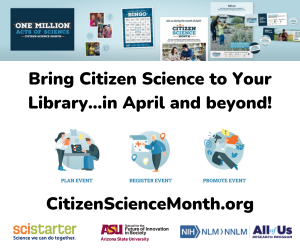Constructive Confrontation: Being Decisive Rather than Nice
Jane Holt is Manager of Centennial Library in Midland (TX). Contact Jane at jholt@co.midland.tx.us. Jane is currently reading Freud: The Making of an Illusion by Frederick Crews.
After a training presentation on dealing with challenging patrons, a young woman who works in our youth services department asked me, “How should I respond when a man says to me, ‘I’m glad I brought my library card today because I’m checking you out?’”
Interesting question: I suppose it depends on the context. If she didn’t mind the comment, then fine. If, however, she found the situation frightening or she felt offended, I suggested that she tell him how what he said made her feel. She needn’t smile or worry about hurting his feelings. Being nice about it will only get her more of the same sort of comments.
The Paralysis of Niceness
“If you can’t say anything nice, don’t say anything at all,” was the advice given to me by my mother and repeated by other well-meaning women throughout my life. And yet being nice and speaking nicely robbed me of the ability to be self-piloting and strong in the face of challenges and specifically when confronted by unwanted sexual advances.
Not only did I not know how to extricate myself from male advances, I was afraid to do so for fear of insults or worse. When I was able to refuse attention, it was often met with a defensive “Don’t flatter yourself, girl,” reaction. Did I misread the intention? Was I coming across as not nice?
Avoidance was my most utilized strategy. I have no way of knowing what opportunities and experiences I missed because I chose to avoid confrontation. I believed that the environment I was raised in, expected me to consider what other people (men in particular) wanted over what I wanted. For example, many years ago, I was excited to get a job in a photography store located in downtown Austin, Texas. The job didn’t pay well, but I was young and still in college. Having the job located downtown worked out well because I could ride the city bus which had a stop located right next to my apartment. Not having to use my car would enable me to save on gas and parking.
It was evident from the start that riding the bus to my job was not going to work out. Every morning some man, seeing that I was traveling alone, would strike up a conversation, sit next to me, ask me where I worked, etc. As a “nice” girl, I didn’t know how to tell them I wanted to be left alone. Being pleasant while at the same time keeping a social distance was an exhausting way to start the day.
My bus riding days were at an end before I got my first paycheck. I decided to drive after all. If I parked in the free lots, I would have to walk through construction zones and scary areas. So, I parked in the pay lot. A portion of my humble paycheck went to finance harassment-free transportation.
After working at the store for a few weeks, I got a call from another salesperson who worked at one of the other stores in the chain.
“Can I ask you something?” she asked. “Are you married?”
I said, “No.”
“Do you have a boyfriend?”
“No,” I answered, “Why do you ask?”
“No reason,” she chirped.
It didn’t take me long to figure out that she was asking for the young man who did the deliveries between stores. He was a good guy and I enjoyed talking to him, but I didn’t want to go out with him. Now, I’m sure she told him that I was available and once again my niceness put me at a disadvantage. Since I believed that I had no reason to refuse, and because I was a nice person who didn’t want to hurt his feelings, I went out with him a couple of times. I’m sure he became aware that I wasn’t into him, so the invitations ended, and our pleasant chats became awkward. That and the parking costs led to my quitting the job.
A Simple “No” Should Suffice
I have come to recognize that niceness can not only be crippling to the person being nice, but it also leads to inauthentic interactions. I don’t need salespeople or service people to be nice to me. I need them to be courteous and efficient. When I am looking to have my car serviced for example, I want the person I’m dealing with to respectfully listen to what I’m asking, communicate to me clearly, and perform the work we agree to. I believe this is what patrons want from library staff as well.
To the young women who work at the public library that I manage, I stress that they decide who they want to spend time with in their personal life. If they are asked for more personal contact by a male, or anyone else for that matter, and they are not interested, they should not have to refer to a relationship with another man as a reason to turn down the invitation. Saying, “No, I’m married,” or “No, I have a boyfriend,” implies that another man is the only reason you will not accept the proposition and your freewill and choice are not sufficient. It is like saying, “If I weren’t already taken, I’d accept. Please don’t get your feelings hurt.” However, I understand that we live in the real world and I would support any woman’s decision to claim a male attachment if she believes that making that claim will end further discussion and keep her safe.
I’m at an age now where I don’t get the attention I once did. In many ways I’m relieved, but it is ironic that now that I have personal awareness and assertiveness, I don’t really need it. I can, however, advise and look after the young women who work at the library I manage.
My advice to young women working at the library: If you are approached by a man and he asks you out or asks for your phone number and you don’t want to oblige, don’t. Don’t do it. Don’t let him down easy, his feelings are not your responsibility. Your feelings are your responsibility. Be respectful and courteous as you would with any other patron and say, “No.” Or “No, I’m not interested.” Or “No thank you, I’m not interested.” He really has no right to ask for an explanation. He made an offer and you declined it. Done. If he presses you for an explanation, you were right to turn him down because he doesn’t take “no” for an answer and that could manifest in other ways. The bottom line is that you make your own choices, you know what you want, and you chart you own course through life. You should not have to justify your social choices, especially potentially intimate ones.
There is a saying: “You have to kiss a lot of frogs before you find a prince.” A psychotherapist friend of mine during the sexually permissive 1980s added what she thought was a pro-feminist addition to it. “You have to kiss a lot of frogs before you find a prince, but you only have to kiss him.” What a relief, I thought at the time. Now I would say, “No you don’t. You don’t have to put your lips on anyone you don’t want to and any frog or prince that requires you to do what you don’t want to do does not deserve any attention whatsoever.”
When I was a little girl I reported to my parents that a little boy in my fifth-grade class was being mean to me. They told me that he was being mean to me because he liked me. I don’t think it was true. Nevertheless, the implication was clear: His feelings mattered more than mine. It was okay for him to treat me badly if he desired me and I shouldn’t feel bad about it.
Persistence Isn’t Flattering, Sometimes It’s Stalking
A study published in 2015 in “Communications Research,”1 found that participants who watched movies in which men’s “persistent pursuit” of women was depicted as romantic—as it so often is in romantic comedies—were more likely to subscribe to stalking myths. The myths being that if the man persists in his pursuit the woman will come around because she didn’t really mean it when she initially refused him.
Men are socialized to be persistent and women are socialized to be flattered by it.2 Movies where the men relentlessly pressure women and are rewarded for it include The Graduate, The Heartbreak Kid, Honeymoon in Vegas, 10, Indecent Proposal, There’s Something About Mary, and many more. There are movies where the woman stalks the man too, but in real life the situation is common and far more dangerous for women. Most men are well meaning gentlemen and being admired and desired is not abuse in and of itself. Most refusals and breakups are disappointing and final. Any woman is free to accept invitations as well as decline them without fear. The problem is that persistence is not sexy or attractive, it is scary and for good reason.
Persistence taken to the next level is stalking. One is six women will be stalked in her lifetime. One in nineteen men will be. The most stalking victimization is to persons aged eighteen to twenty-four and most women who are murdered are stalked first.3 Many victims don’t realize the extent to which stalking behavior threatens their safety.
Although stalking is a crime in all fifty states some take it more seriously than others.4
Stalking victims are often subject to scrutiny if the situation becomes a legal one.5 Women are often asked: “Why didn’t you reject him earlier?” “Why did you meet him for coffee after you said you had broken up?” “Why did you take his calls?”
Support Through Library Policies
Many public libraries have policies against stalking type behavior. At Midland County (TX) Public Libraries our Rules of Conduct for Patrons reads, in part: “Staring at, photographing, or following a patron or staff member in a manner that reasonably can be expected to disturb him or her is prohibited.” It is important that library staff be encouraged to report any behavior that causes fear or appears creepy. Any evidence may be needed as legal proof for the victim’s protection. Better to have too many incident reports than too few.
Public libraries are open to all and because of that we are also accessible to some shady characters. No staff member should be left to exit the building alone,
especially at night. Any patron who appears overly interested in any staff member should be spoken to by management. Just letting the person know they are on the radar, can help put an end to the pursuit. I’ve been surprised at how sitting someone down in the manager’s or director’s office often brings the problem behavior to a halt. It says better than words: “I know what you’re doing, and I don’t like it.”
Stalkers of young females tend to be men with whom the woman has some history.6 Often, he is a former boyfriend, or someone with whom she has socialized. Security personnel and management need to be aware if these people show up to the library and hang around their former partner uninvited and unwelcome.
Practice Confrontation Techniques
If our young librarian who the male patron wanted to “check out” was offended or felt uncomfortable by the way she was treated or spoken to, how could she respond? What could she say that would allow her to do her job but also set boundaries? A useful tactic is what library security expert, Steve Albrecht, describes as the “If then . . . ” approach.7 A request is stated as a reciprocal agreement, “If I can do (something positive) for you, then will you do (something positive) for me?”
The reverse of the statement also works, “If you don’t . . . then I can’t.” In this case, where a patron made an inappropriate comment I would suggest: “If you want me to help you, then I need you to be respectful and not make comments like that again.” Or “If you don’t stop making comments like that, I can’t help you.”
Sometimes direct interactions such as these will be met with indignation because we all have a moral bias toward ourselves. Even when we know we are wrong, our pride often gets in the way of admitting our mistakes. Nevertheless, stand your ground for no other reason than you deserve to be defended.
I am not suggesting that we should take all comments personally. No doubt the man who made the “check you out” comment to the young library worker makes comments of that nature on a regular basis. He was not singling her out and even if he were, it certainly is no reflection on her. Staff should be encouraged not to take rude behavior personally and to be courteous even in the most trying situations. As a police officer from North Dakota said, “We treat people as ladies and gentlemen, not because they are, but because we are.”8
It is imperative that staff understand that asking for help when confronted by difficult patrons does not mean they do not know how to do their jobs, it just means that they have tried their best and it is time to bring in another person.9 Having practice sessions with role playing will lower anxiety when difficult situations occur and build confidence when confrontations happen. Like everything else, practice makes better. Encourage staff to give it their best shot first before asking for assistance. There is no need for niceness, if you have the confidence of professional skills and knowledge of the library’s policies.
Niceness requires keeping things on an even keel—not making a fuss.10 It puts staff at a terrible disadvantage when it comes to confronting unruly behavior. Bullies count on your niceness to get their way. They’ve been rewarded for it in the past. If you know the policies and you have the support of managers and administrators, you won’t be afraid—a little nervous maybe, but not afraid.
Pose and Breathe First
Before confronting an upset patron, I always suggest taking a few seconds to do a power pose. Amy Cuddy has made us aware of how influential physical posture can be. Her studies have demonstrated that posture not only sends a message to the world, it also sends a message to your brain. Taking a few seconds to pose as, say, Superman or Wonder Woman, can help bring hormones to levels that reduce stress and enhance confidence. Pair that with some deep breaths, and you are ready to face the challenge.
Always keep in mind the Universal Truths about Human Interaction:11
- All people want to be treated with dignity and respect.
- All people want to be asked rather than told to do something.
- All people want to be informed as to why they are being asked or ordered to do something.
- All people want to be given options rather than threats.
- All people want to be given a second chance when they make a mistake.
You may meet resistance when confronting objectionable behavior—denial, or an argument—but always opt for the approach that is respectful and enables the patron to save face. Start with a gentle approach first, you can always intensify later if needed.
I recommend that copies of the rules of conduct for patrons be readily available at every service point. If you are confronting a patron who is causing a problem by staring at someone, highlight the part of the policy that addresses staring. Hand the patron the paper with, “Excuse me, sir. We have policies at the library I’d like to show you. If you’ll please read the highlighted area. If you have any questions, I’ll be happy to answer them.”
Most people don’t enjoy direct confrontation and patrons are no exception. I’ve found that the highlighted policy sheet is sufficient warning for most people. Incidentally, this method is especially helpful when dealing with patrons whose body odor is so offensive that it disturbs other people.
Calling Police
If a situation becomes dire, the police may need to get involved. When you ask yourself, “Maybe I should call the police,” you should probably call the police. Trust your intuition. If you suspect that telling the patron that you are going to call the police will trigger a violent reaction, someone else needs to do it. Meet with the staff and create a set of code words and hand signals that will communicate the need for someone to go to a safe place and call law enforcement.12 Cops are not called to escalate situations. They help enforce consequences
for situations and preserve the peace by lowering the emotional temperature. It also sends a message that the library will not tolerate violations of their policies.
Empathize and Set Boundaries
Empathy is an important component of good library service but being aware of another’s feelings does not require that you prioritize the other person’s feelings over your own. Skillful communication requires that we set boundaries. Public libraries should make their behavior policies known to all staff and patrons. Effective policies reduce the need for confrontations in the first place.
For all who are working in libraries, or anywhere with the public, I recommend setting boundaries, mastering good communication skills through practice, knowing the policies, and reporting anything that makes you feel unsafe.
A confrontational situation is no time to be nice. Nice often comes from a fear of displeasing others and not wanting to make trouble. It’s difficult to be courageous if you are preoccupied with how you are being perceived by others.
And remember; be empathetic, be respectful, be professional, be helpful, be patient, be calm, be brave, and be courteous. Be kind, sure. Nice, no.
References
- Julia R. Lippman, “I Did It Because I Never Stopped Loving You: The Effects of Media Portrayals of Persistent Pursuit of Beliefs About Stalking,” Communication Research 45, no. 3, Feb. 16, 2015, accessed Aug. 15, 2018.
- Chloe Angyal, “Romantic Comedies Teach Women That Stalking is a Compliment,” Huffpost, Jan. 28, 2016, accessed June 10, 2018..
- “Quick Guide to Stalking: 16 Important Statistics, and What You Can Do About It,” NCADV Voices, official blog for the National Coalition Against Domestic Violence, Jan. 30, 2017, accessed June 10, 2018.
- “2017-NCVRW Resource Guide: Stalking Fact Sheet,” National Center for Victims of Crimes, accessed June 10, 2018.
- Angyal, “Romantic Comedies Teach Women That Stalking is a Compliment.”
- “Quick Guide to Stalking: 16 Important Statistics, and What You Can Do About It,” NCADV Voices.
- Steve Albrecht, Library Security: Better Communication, Safer Facilities (Chicago: ALA Editions, 2015): 90-91.
- George Thompson and Jerry B. Jenkins, Verbal Judo: The Gentle Art of Persuasion (New York: HarperCollins, 2013): x.
- Albrecht, Library Security, 137.
- Aziz Gazipura, Not Nice: Stop People Pleasing, Staying Silent, & Feeling Guilty . . . And Start Speaking Up, Saying No, Asking Boldly, and Unapologetically Being Yourself (Portland, OR: Center for Social Confidence, 2017): chapter 4, “Conflict Avoidance.”
- Thompson and Jenkins, Verbal Judo, 206.
- Albrecht, Library Security, 73.
Further Reading
Daisy Buchanan, “I’m Tired of Being Kind to Creepy Men In Order to Be Safe,” The Guardian, US edition, Aug. 20, 2015, accessed Aug. 15, 2018.
Amy Cuddy, Presence: Bringing Your Boldest Self to you Biggest Challenges (New York: Back Bay Books, 2015).
Gavin De Becker, The Gift of Fear: and Other Survival Signals that Protect Us from Violence (New York: Dell Publishing, 1997).
Clementine Ford, “The Only Effective Way to Reject Men,” The Sydney Morning Herald, June 6, 2014, accessed Aug. 15, 2018.
Tags: sexual harassment







